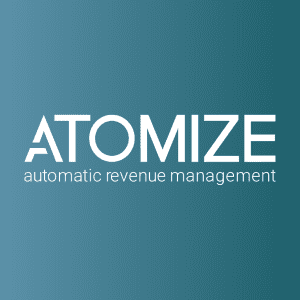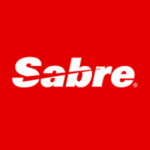 In the post-pandemic travel recovery, all that pent-up demand has rushed out the gates with hordes of people rediscovering the globe. But as they say, “This too shall pass.”
In the post-pandemic travel recovery, all that pent-up demand has rushed out the gates with hordes of people rediscovering the globe. But as they say, “This too shall pass.”
What happens after people have ‘gotten it out of their systems’? How will hotels have to adapt rate strategies and services as demand normalizes while we simultaneously confront a looming recession that can profoundly influence discretionary income spending habits? How will guest behavior change once we are firmly out of the current revenge travel phase?
Right now, we’re all so focused on the here and now that it may be hard to find time to devise a top-level plan for these macro-events that will affect revenues in 2023, and yet we still must do so to maintain healthy margins and lay the foundation for the rest of the decade. While the needs and recommended adjustments vary for each organization and brand, we can nevertheless speak to these global forces before offering a few broad recommendations.
Labor Challenges Will Persist
Many believe that hospitality’s current woes are a direct outcome of the pandemic. They’re not wrong, but it’s better to think of our present challenges as accelerated instead of caused by COVID-19. True, with all the lockdowns and industry instability over the past two years, many people have reskilled and transitioned permanently over to other service sector jobs. But look deeper at the demographic makeup of hospitality over the past decade or longer.
Hotel organizations in numerous key labor markets skew old compared to other businesses, meaning that, pandemic or not, we were destined to encounter a naturally higher churn rate from a greater frequency of retirements. Concurrently, young people entering the workforce, for which there are fewer of them in advanced economies as birth rates decline, are more incentivized to opt for STEM or finance because the pay is substantially better. Pay scale is unfeasible for us to compete with, and these industries also have far more of the limelight in our broader cultural narrative.
Garnering more awareness for why a hotel career path is beneficial versus others is beyond the control of any single brand; yet this ‘hearts and minds’ campaign represents another systemic problem within the boarder tourism industry. Together, these are a few key reasons for why labor shortages may persist well in the future.
The Boomers Keep Booming
As the trend of all trends, what we are currently in the midst of is a two-decades-long stretch where baby boomers are transitioning into retirement (or post-retirement work). Critical for this, these are individuals who benefited the most from the 20th century post-WWII economic system – gainfully employed in high-salaried jobs for most of their working years then making a killing off the pandemic-born stock market, asset and housing bubbles.
Recession or not, these newly retired or emeritus boomers want to see the world. And they have the money to do so! This grand demographic shift may influence your service offerings and buoy the topline, but also obscure the need to start cultivating advocacy amongst millennials or centennials. For instance, the younger generations care far more about sustainability and will vote with their wallets for brands that market these upgrades while keeping nightly rates within the range of what the average non-boomer can afford. As morbid as this may sound, eventually, the boomers will wane in numbers beyond a ‘point of no return’, and if you haven’t evolved your brand by that time then you could be in the queue for creative destruction.
The Future Has Always Been Tech
With labor challenges likely to continue, hotels must continue to look for ways to do more with less. This inevitably comes down to automation. But rather than be a force for trimming staffing levels to preserve the bottom line, all automation should be undertaken as part of a process that concomitantly involves internal retraining and upskilling so that you are motivating existing team members to stay with the organization as well as giving managers time to implement new programs that will evolve the brand.
The more we see from what vendors are doing, the more we believe that the future of a hotel firmly depends on the tech stack. You need mobile apps and (soon) mobile keys with express check-in. You need solid interfaces that will automatically push service orders around and track preventative maintenance or asset capitals. You need chatbots and conversational AI to handle the brunt of guest inquiries at the precise moment a guest reaches out. You need business intelligence (BI) and customer data platforms (CDPs) that can bring together a variety of data from different profit centers so that you can get a clear picture about what experiences your hotel guests want during a visit. You need omnichannel outbound communications and upselling tools to maximize revenue per guest.
All this means that hotels will be increasing reliant on their IT teams. Hence, it behooves you to both nurture your existing personnel and devise a plan for expanding this department. Moreover, with the whole world becoming exceedingly tech-centric, maybe it’s time to start retraining members from every operation to understand some of the basics instead of only learning service-oriented skills.
Purposeful Travel
If there’s one trend that we feel will be indelibly felt from COVID-19, it is the idea of traveling with purpose or, to put it another way, the pursuit of maximizing one’s memories while abroad. Like what happens when you take a toy away from a kid and only then do they realize its true value, the pandemic collectively made us appreciate what a modern privilege it is to be able to traverse the globe in a matter of hours. If it happened once (a pandemic or perhaps a further division of the world resulting from the Russia-Ukraine conflict), then it can happen again, so let’s get our travel kicks in while it’s still possible.
Under the tenets of purposeful travel, it’s no longer just about visiting a destination and doing the same old thing. People want every moment to matter; they want to see as many new sights as possible; they want bucket list experiences with all the logistics prearranged by the hotel or tour operator; they want their travel to help define their identities; above all, they want meaning and transformation. Whether a traveler’s purse has been pinched by stagflation or not, your guests will be more than willing to spend on an experience if it’s deemed as a worthy use of their time.
Your tech stack is the backbone that will help you to maximize each guest’s time by expediting all the grunt work and freeing up your teams to deliver speedy, high-touch service. From there, it’s a matter of crafting all that bucket list self-actualization and then doubling down on personalization so that it can be presented in a matter befitting each guest’s needs. Above all, it’s about process – most of this will take months, if not years, to iron out, so you need to develop a system for gradual implementation and continual reevaluation.

































